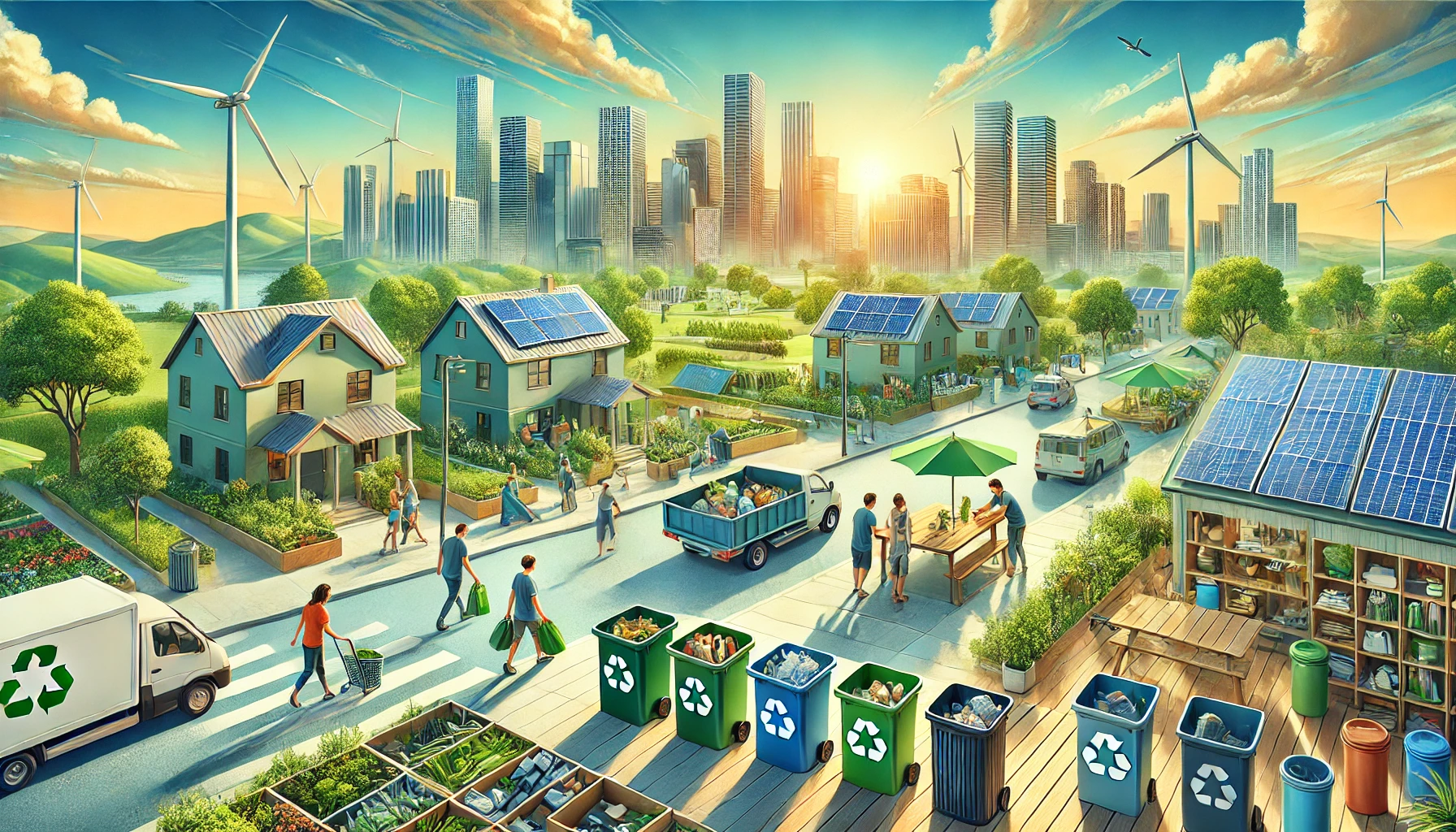Behavioral Insights on Waste Management: A Path to Sustainable Urban Practices
Researchers from Ateneo de Manila University explored waste management behaviors in Metro Manila using an extended theory of reasoned action, finding that knowledge, attitudes, and social norms significantly influence sustainable practices. The study emphasizes targeted education, social campaigns, and policy interventions to foster pro-environmental behaviors in urban settings

Researchers from the John Gokongwei School of Management, Ateneo de Manila University, Philippines, conducted a study to uncover the factors driving waste management behaviors in Metro Manila, a region grappling with the consequences of rapid urbanization and increasing waste generation. Using an extended theory of reasoned action (TRA) model, the study aimed to predict how knowledge, attitudes, subjective norms, and behavioral intentions influence sustainable waste practices. Metro Manila, known for its densely populated cities and environmental challenges, provided a crucial setting to explore behavioral dimensions in waste management, particularly in a developing country that is a major contributor to global plastic pollution.
Unraveling the Role of Knowledge in Waste Management
The research surveyed 207 residents across Metro Manila’s 16 cities, aged 18 to 60, using a four-point Likert scale to measure their knowledge, attitudes, and intentions. Knowledge of urban environmental sustainability emerged as a significant predictor of waste management attitudes, though the relationship proved complex. Participants with lower sustainability knowledge often demonstrated stronger waste management attitudes, likely due to familiarity with waste-specific issues rather than broader environmental awareness. This counterintuitive finding highlights the need for targeted public education programs that bridge gaps in understanding and make sustainability more relatable. Additionally, the study confirmed that knowledge of urban environmental sustainability directly impacts knowledge of waste management, reinforcing the interconnectedness of these topics. Individuals with a foundational understanding of sustainability are better equipped to grasp the nuances of effective waste practices, supporting the concept of “knowledge by acquaintance.”
The Power of Social Influence and Subjective Norms
Subjective norms, social pressures, and expectations played a crucial role in shaping individuals’ intentions toward sustainable waste practices. The research demonstrated that individuals were more likely to engage in waste management behaviors when they felt supported or encouraged by peers, family, or their community. This aligns with global studies showing that the perception of social norms significantly influences pro-environmental behaviors. In Metro Manila, where waste management systems often rely on community participation, fostering positive norms could be a game changer. Social campaigns and community-driven initiatives highlighting collective responsibility and shared benefits may amplify engagement and drive behavioral change.
Transforming Intentions into Sustainable Actions
Behavioral intentions emerged as the critical link between knowledge, attitudes, subjective norms, and actual waste management behaviors. The study revealed that individuals with stronger intentions to engage in sustainable practices were more likely to translate these intentions into observable actions, such as waste segregation and recycling. These findings underscore the importance of nurturing not just awareness but also commitment among individuals. Policymakers and stakeholders can leverage these insights to design interventions that inspire intentions and facilitate their conversion into sustainable behaviors. For example, providing accessible waste management infrastructure and incentivizing participation could remove barriers and strengthen the intention-action link.
Policy and Education as Catalysts for Change
The study offers a roadmap for addressing waste management challenges through targeted policies and educational initiatives. Campaigns tailored to specific knowledge gaps could enhance public understanding of urban sustainability and its connection to waste practices. Integrating these topics into school curricula may foster pro-environmental attitudes from an early age, creating a foundation for lifelong sustainable behaviors. Community-wide programs emphasizing the social and environmental benefits of proper waste management could further amplify public participation. Policymakers could also focus on creating positive reinforcement mechanisms, such as rewards for recycling or penalties for improper disposal, to drive compliance and engagement.
Confronting Limitations and Expanding Horizons
While the study provides valuable insights, it acknowledges certain limitations. The reliance on convenience and snowball sampling methods may have introduced biases, limiting the generalizability of the findings. Additionally, the focus on Metro Manila’s urban setting excludes perspectives from rural and semi-urban areas, which may face distinct challenges in waste management. Future research could address these gaps by employing representative sampling techniques and exploring diverse geographic contexts. Expanding the scope to include different demographic groups and regions could enrich our understanding of the broader dynamics influencing waste management behaviors.
A Blueprint for Sustainable Urban Development
Overall, the study underscores the importance of urban environmental sustainability knowledge in shaping waste management behaviors. By integrating these insights into policy and education, stakeholders can address the root causes of unsustainable practices and foster a culture of sustainability. The interconnectedness of knowledge, attitudes, and social norms offers a comprehensive framework for crafting interventions that drive meaningful change. As urbanization accelerates in developing regions, addressing waste-related challenges is becoming increasingly urgent. This research provides a valuable blueprint for promoting sustainability in Metro Manila and beyond, emphasizing the role of behavioral science in tackling environmental issues. With its focus on the behavioral dimensions of waste management, the study contributes to global efforts to mitigate environmental impacts and achieve sustainable urban development
- FIRST PUBLISHED IN:
- Devdiscourse










